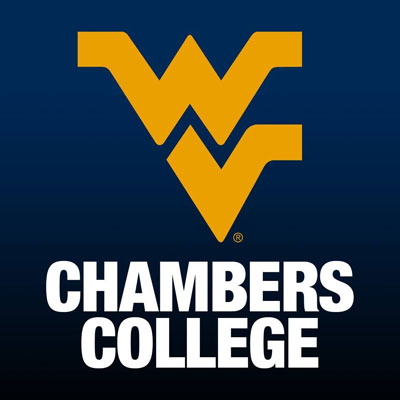Ednilson Bernardes, associate professor of supply chain management, is, in part, responsible for getting the supply chain program off the ground so quickly at the College of Business and Economics at West Virginia University – and this month, he has another honor attached to his name.
The Budapest University of Technology and Economics in Hungary selected Bernardes to participate in its MBA Intensive Seminar Program. The exchange took place this month, and the purpose was to provide graduate business students with an opportunity to interact and learn from professors and professionals from other countries, in particular the United States.
Bernardes proposed two seminars – “Negotiating in a Global Business Context” and “Changing the Supply Strategy in a Global Business Environment” – to the committee, who accepted his competitive offer based on his resume, business background and proposal material. The committee typically selects three faculty members, and in this case, Bernardes joined a faculty member from Canada and another from the west coast to offer various half-day sessions for the participants.
Bernardes mentioned how competitive the selection process was and how much it meant to him to be selected.
“The topics I discussed are clearly related to the program we’re working to develop here, global supply chain management, as well as being related to my background in the aerospace industry,” Bernardes said. “I believe my experience in both of those things is what led me to be selected for this prestigious honor.”
Bernardes hopes to keep the momentum going as he is currently being considered as the keynote speaker at an engineering conference in Brazil next year. A native of Brazil, Bernardes said he’d be extremely interested in teaching the next generation of professionals about what he’s done in the industry.
In addition to this accolade, Bernardes is also celebrating the progress that the supply chain management program has made since his arrival at WVU in the spring of 2013.
Bernardes recalled a meeting in Bentonville, Arkansas at the Walmart headquarters, where he joined representatives from 50 other universities and colleges that were working toward creating a supply chain management program. Of these 50, WVU is the first to emerge with a full program, Bernardes said.
“I was, and always have been, fully aware of what’s happening in the market, and I knew it was necessary for us to pull back on the throttle and make this program happen quickly,” Bernardes said. “Even though there were participating schools at that meeting who were further ahead in the process than we were, we put in the work and did all the right things to get ahead. There’s a lot of work that has been put in by several people that nobody sees, but now we have this beautiful program with great students.”
Currently, students have been taking on the area of emphasis in supply chain that is part of the management major. Currently there are 43 students, and Bernardes anticipates 70-100 students by the start of the fall 2016 semester.
In the last year, Bernardes has partnered with David Beaver, assistant vice president and chief procurement officer at WVU, to offer students an unpaid internship experience as part of a supply chain management course in which the entire class is involved on a live project for the university.
“This is such a special thing for our students, this experience – Beaver’s background in working in Hollywood in the past, as well as other big, big companies, has helped the university rise to the 21st century in terms of procurement,” Bernardes said. “With Beaver’s guidance, these students work on a strategic sourcing project; we separate them into groups, and they go there and work on these real, live projects throughout the semester, and by the end of the semester they have something great to talk about in their job interviews. They can look at an interviewer and say with confidence that they were part of a project that saved the university thousands of dollars.
“Projects and opportunities like this are what make our students different from those at other schools – they have the opportunity to develop their skills hands-on during the semester and learn, rather than just waiting for a summer internship to do it,” Bernardes said. “They now have substance to build on and talk about to employers, not to mention, use this knowledge when they participate in case competitions like the one we won this past fall.”

